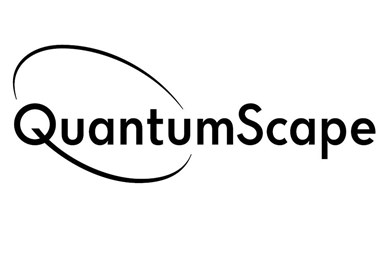Supplier Touts Quantum Leap in Solid-State Batteries
VW-backed startup overcomes tradeoffs in promising tech
Solid state batteries long have been viewed as the potential holy grail to put electric vehicles on even footing with ICE-powered cars.

The technology promises to cut costs, while boosting driving range, reducing charging times and improving safety. But developers have struggled to balance the tradeoffs between the parameters and optimize overall performance.
Not anymore. QuantumScape, a 10-year-old startup backed by Volkswagen Group, claims it has resolved the technical challenges—and has the test results to prove it.
Solid Results
The Silicon Valley-based company says its design has nearly double the energy density (1,000 Watt-hours per liter) of leading lithium-ion cells, while demonstrating improvements in charge time, cycle life, safety and operating temperature.
Purported benefits include:
- 80% longer range than current lithium-ion batteries
- Charging to 80% capacity within 15 minutes
- Retaining 80% capacity after 800 charging cycles with a Coulombic efficiency of 99.97%
In addition, QuantumScape says its batteries are capable of lasting hundreds of thousands of miles and can operate over a wide range of temperatures, including as low as -30°C. By comparison, the supplier says other solid-state batteries last only for a few hundred cycles and don’t fare well in extreme conditions.
How It Works
As with other solid-state batteries, QuantumScape uses a solid electrolyte in place of liquid ones used in conventional lithium-ion cells.
QuantumScape’s proprietary design replaces the organic separator used in conventional cells with a flexible ceramic unit. The traditional carbon or carbon/silicon anode is eliminated, and there is no excess lithium.
The pure metallic lithium anode is formed in situ when the finished cell is charged, rather than when it is produced, according to the supplier. QuantumScape says the architecture delivers high energy density while enabling lower material costs and simplified manufacturing.
The design is said to further increase energy density because there is no excess lithium on the anode. Some previous attempts at solid-state batteries used a lithium foil or other deposited-lithium anode, which QuantumScape notes reduces density.
To enhance safety, the noncombustible solid-state separator isolates the anode from the cathode—even at much higher temperatures than conventional organic units used in lithium-ion batteries—the supplier says.
QuantumScape has some 200 patents and applications related to the technology.
What’s Next?
Several other carmakers—including BMW, Fisker, Porsche, Tesla and Toyota—and battery suppliers are developing their own solid-state systems. But most don’t expect commercialization to ramp up for 5-10 years.
VW, which has invested more than $300 million in QuantumScape, aims to be one of the first to market. The carmaker formed a joint venture with QuantumScape in 2018, with a goal of introducing next-generation EVs with the batteries by 2025.
“We believe the new lithium-metal solid-state battery technology opens the automotive industry up to the next generation battery and creates a foundation for the transition to a more fully electrified automotive fleet,” says QuantumScape CEO Jagdeep Singh.
In addition to its partnership with VW, QuantumScape is raising funds through a reverse merger with Kensington Capital Acquisition.
RELATED CONTENT
-
Cobots: 14 Things You Need to Know
What jobs do cobots do well? How is a cobot programmed? What’s the ROI? We asked these questions and more to four of the leading suppliers of cobots.
-
On Electric Pickups, Flying Taxis, and Auto Industry Transformation
Ford goes for vertical integration, DENSO and Honeywell take to the skies, how suppliers feel about their customers, how vehicle customers feel about shopping, and insights from a software exec
-
Increasing Use of Structural Adhesives in Automotive
Can you glue a car together? Frank Billotto of DuPont Transportation & Industrial discusses the major role structural adhesives can play in vehicle assembly.








